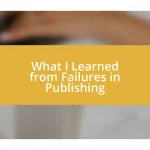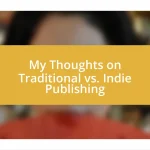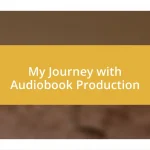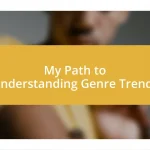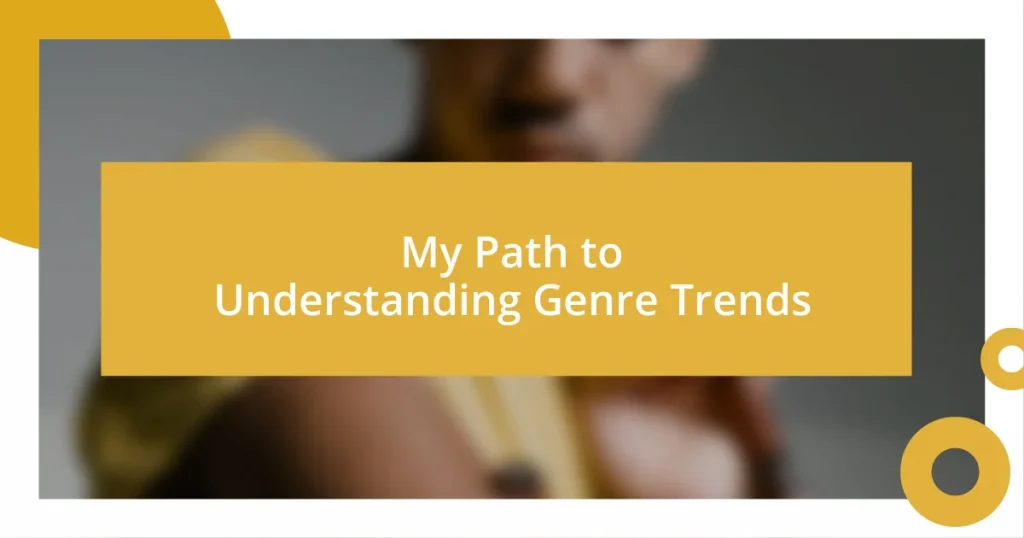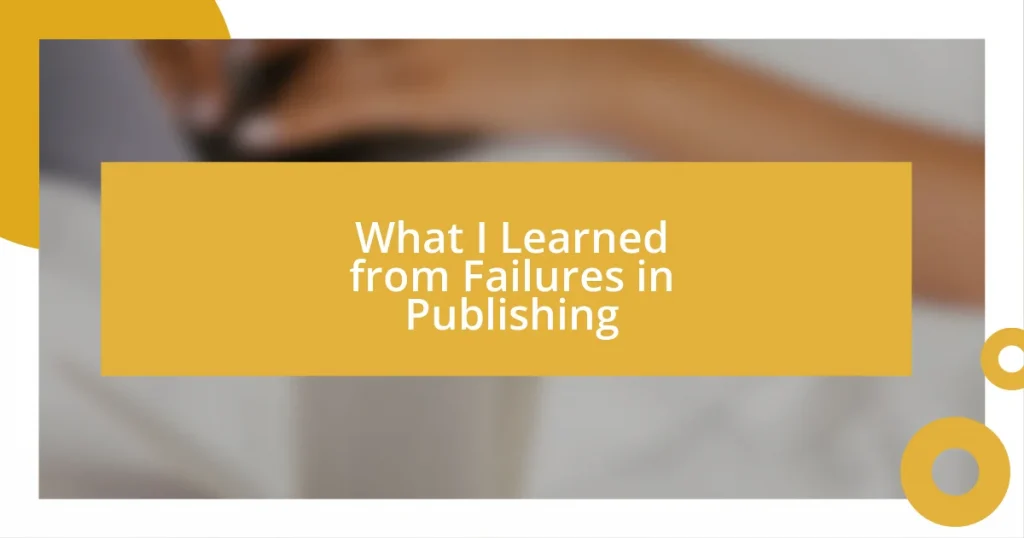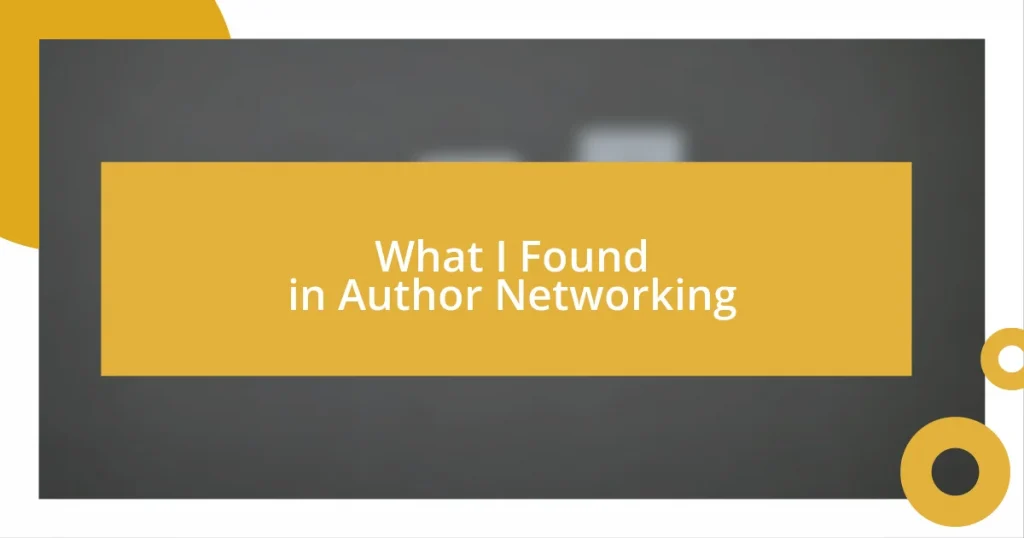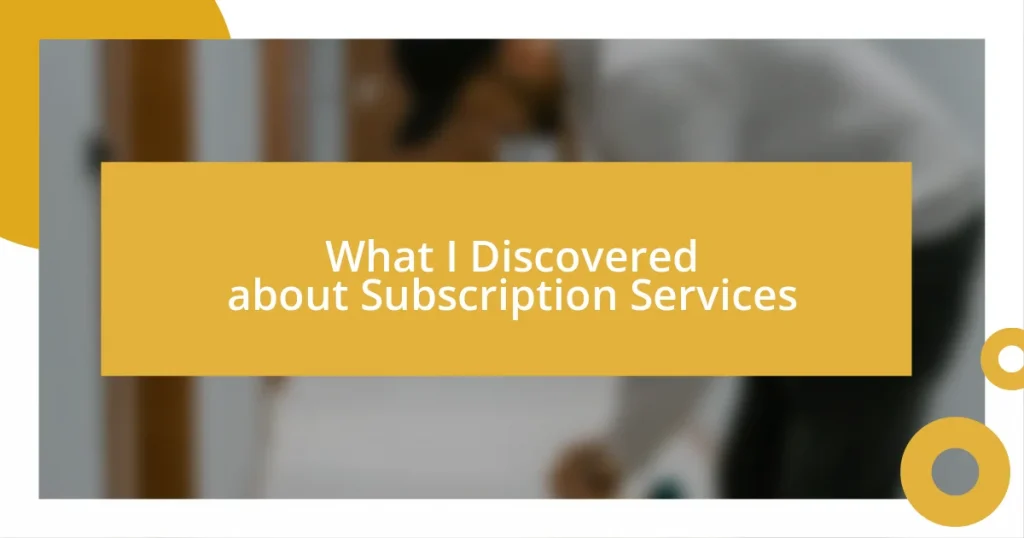Key takeaways:
- Genres evolve with societal changes and reflect cultural anxieties, as seen in the rise of hard-boiled detective stories during the Great Depression and horror films during the Cold War.
- Current genre trends are shaped by cultural relevance, diverse voices, medium evolution, and nostalgia, influencing both storytelling and audience engagement.
- Future trends are expected to include hybrid genres and authentic representation, with technology enabling immersive storytelling experiences tailored to viewers’ preferences.
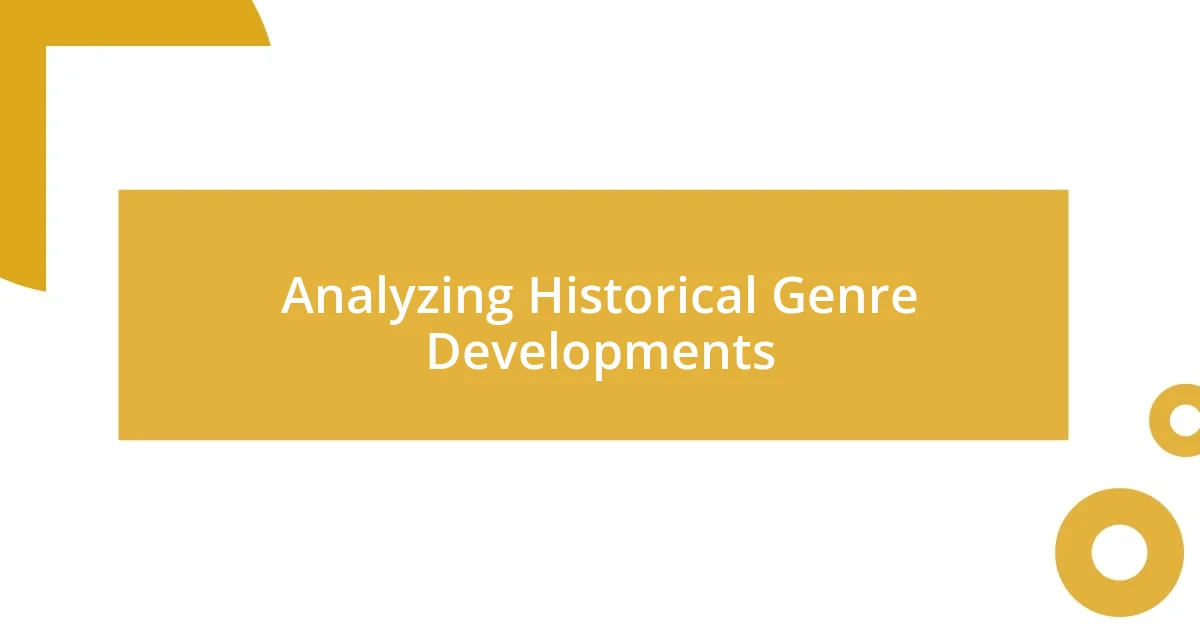
Analyzing Historical Genre Developments
When I think back to my first foray into genre exploration, I remember immersing myself in the literature of the past. Historical genres often mirror societal changes, and it’s fascinating to see how the Great Depression shaped the rise of hard-boiled detective stories. Have you ever considered how a collective struggle can influence the stories we tell?
As I dove deeper into genre analysis, I discovered how horror films evolved alongside cultural fears and technological advancements. For instance, during the Cold War, horror became a canvas for our anxieties, manifesting in films that questioned identity and trust. Reflecting on those eerie moments in cinema, I can’t help but feel that our entertainment often serves as a reflection of our deepest fears.
Exploring historical genre developments helped me understand that genres aren’t static; they evolve with time. The fluidity of genres makes them a fascinating subject of study. I often ponder: can we truly box them in, or do they represent the complexity of the human experience? Recognizing these shifts not only enriches our understanding but also allows us to appreciate the artistry behind each genre’s evolution.
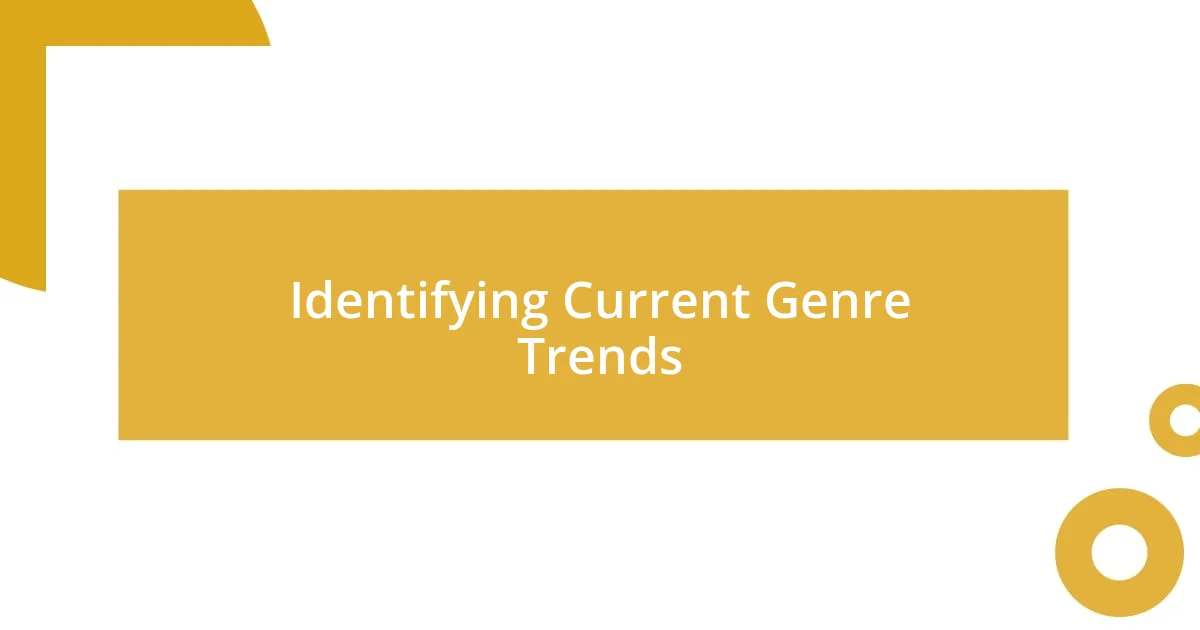
Identifying Current Genre Trends
Identifying current genre trends requires a keen eye on both emerging narratives and audience sentiments. I remember sitting in a coffee shop, flipping through a popular streaming platform, and observing how the surge of psychological thrillers mirrored a societal obsession with the intricacies of the human mind. These moments underscore how genre trends are often a reflection of current cultural conversations and individual experiences.
To pinpoint current genre trends, consider these observations:
– Cultural Relevance: Genres like dystopian fiction gain traction during times of uncertainty.
– Diverse Voices: The rise of narratives from underrepresented groups sparks fresh perspectives, often reshaping popular genres.
– Medium Evolution: The blending of genres in television—such as dramedy—illustrates the audience’s desire for complexity in storytelling.
– Nostalgic Revival: Nostalgia plays a crucial role, as older genres reemerge with modern twists, tapping into viewers’ memories.
Reflecting on this dynamic landscape, I feel an exhilarating mix of anticipation and curiosity about where our collective storytelling journey will lead next. What genres will rise, and how will they resonate with our evolving cultural narrative?
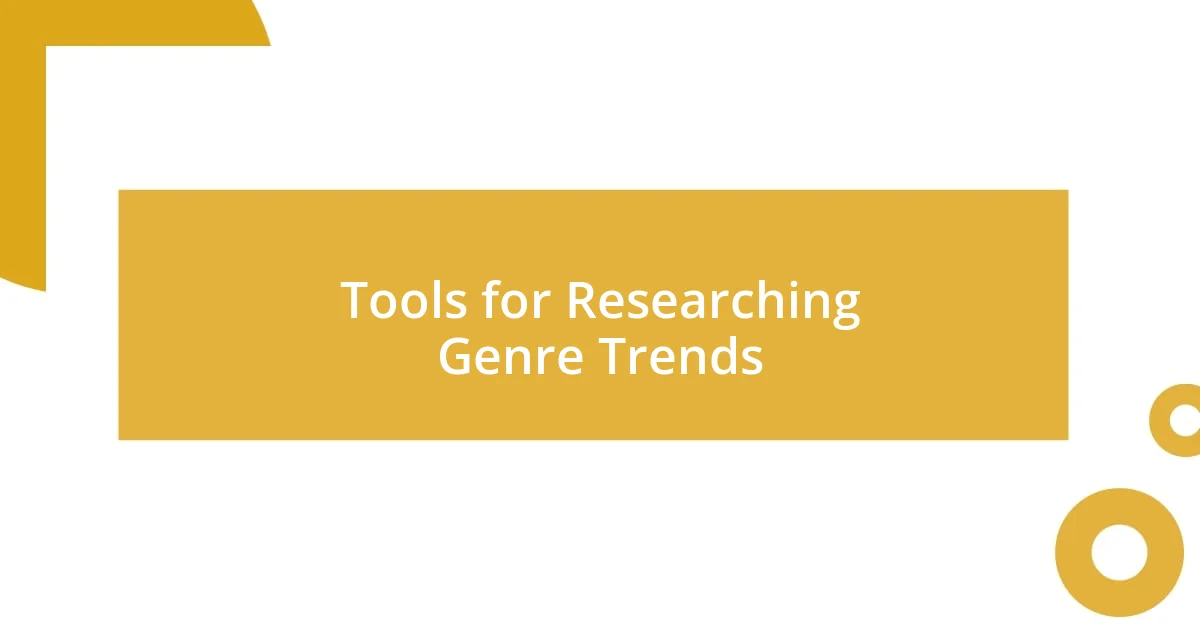
Tools for Researching Genre Trends
When diving into the realm of genre trends, I’ve found that utilizing the right tools can significantly enhance your research. For instance, data analytics platforms like Google Trends provide real-time insights into what genres are capturing audience attention. It’s fascinating to see how search volumes fluctuate over time, reflecting our collective curiosities. I once used this tool to analyze the uptick in interest for rom-coms during a particularly challenging year, which revealed a yearning for light-hearted narratives amid chaos.
Another valuable resource is social media platforms. By observing trending hashtags and discussions, you can grasp what resonates with viewers at that moment. I remember scrolling through Twitter during an awards season and noticing how discussions around certain films sparked debates about genre definitions. Engaging in these conversations not only deepens my understanding but also connects me with others who share this passion for storytelling.
Conferences and workshops also offer an incredible opportunity to learn from industry experts. Attending a genre-specific panel taught me about the intricate balance of innovation and tradition in genre storytelling. I felt inspired listening to writers share their journeys of embracing contemporary issues within classic frameworks. This personal connection adds a rich layer to the research process, shaping my perspective on how genres evolve.
| Tool | Description |
|---|---|
| Google Trends | Tracks search volume over time, revealing audience interests. |
| Social Media | Engages in real-time discussions around trending genres and narratives. |
| Industry Conferences | Offers expert insights and networking opportunities for deeper understanding. |
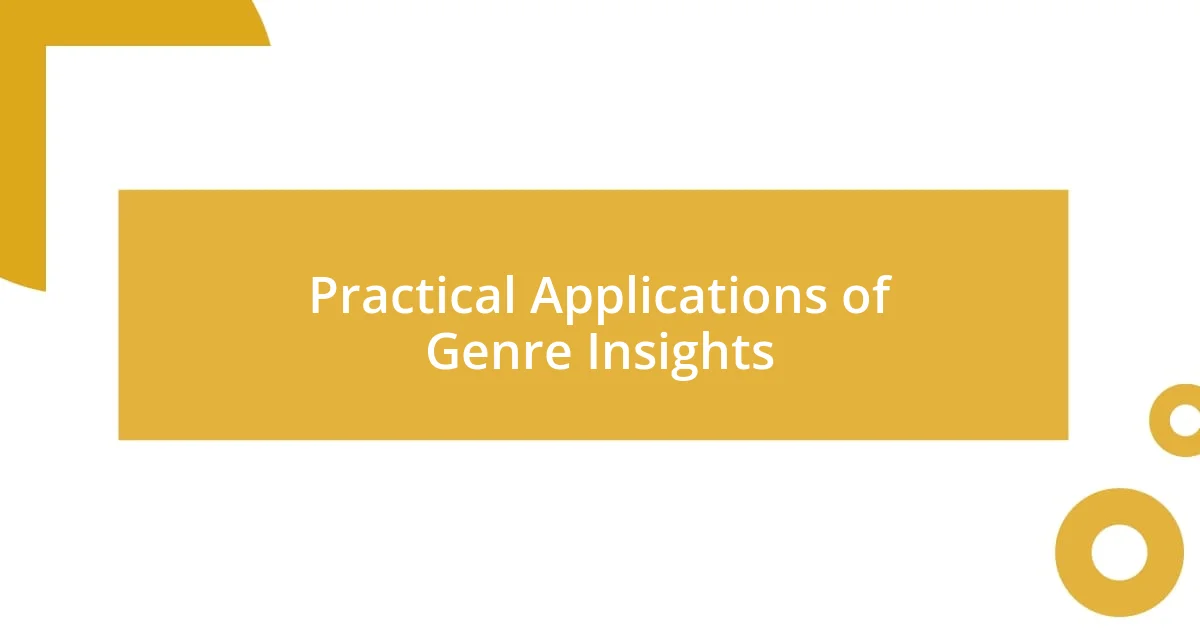
Practical Applications of Genre Insights
Understanding genre insights can significantly shape how creators approach their work. I once collaborated on a short film project that sought to merge horror elements with a coming-of-age storyline. Through my analysis of genre trends, I realized how blending these genres can engage audiences who seek novelty while still delivering emotional resonance. What more exciting way to pull viewers in than by challenging their expectations?
In my experience, applying genre insights also extends to marketing strategies. For instance, when I shared a horror-comedy script, adjusting the promotional materials to emphasize its humor allowed us to tap into a wider audience base. I reflected on what drew people in and realized that creating content inspired by trending themes could lead to impressive results. Have you ever thought about how a simple shift in focus might unleash a project’s potential?
Finally, understanding genre trends directly informs audience engagement. During my last book club meeting, we discussed a series of novels that defied the conventions of their genres. The passion and varied opinions sparked a deeper dialogue about how stories resonate differently with different audiences. This experience reinforced my belief that being attuned to genre insights helps creators not only tell better stories but also foster meaningful connections with their audience. What conversations could your work inspire?
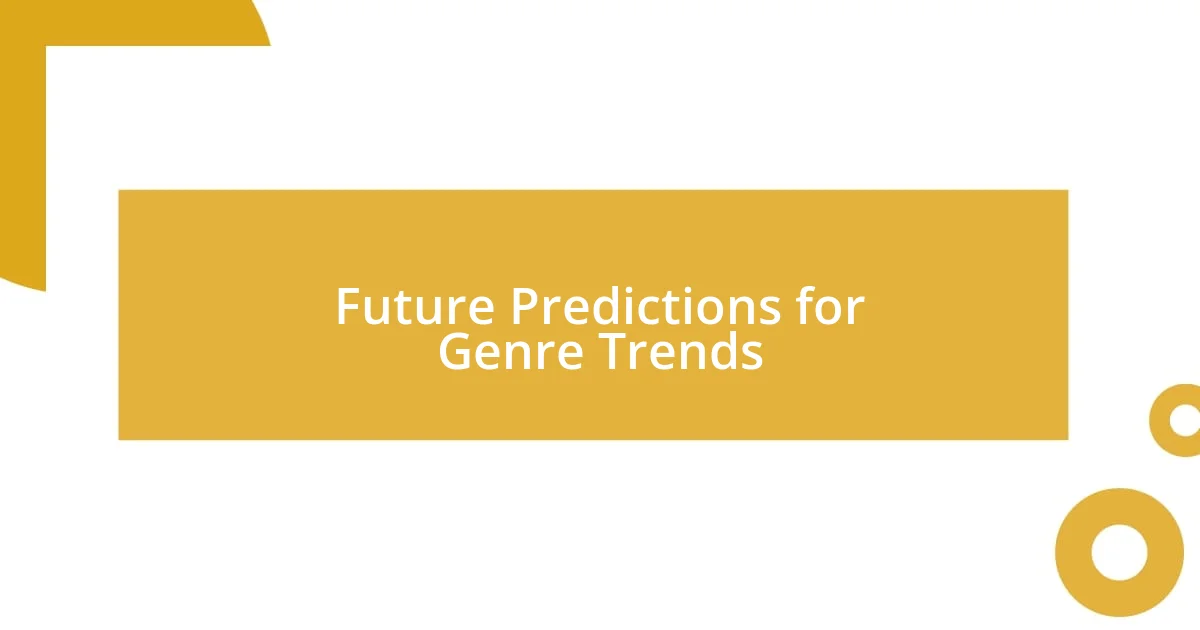
Future Predictions for Genre Trends
Looking ahead, I believe we’ll see a rise in hybrid genres that merge unexpected elements. For example, the blending of sci-fi with historical drama is something I’m personally tracking. This trend excites me because it can elevate storytelling by providing new perspectives on familiar narratives—imagine a tale about time travel intertwined with pivotal moments of history! Doesn’t that sound intriguing?
Moreover, as audiences become increasingly diverse, creators will likely prioritize authentic representation within genres. In my own experience, I worked on a web series that highlighted underrepresented cultures, intertwining their stories within traditional genre structures. The positive feedback we received reinforced my conviction that inclusive narratives resonate deeply with viewers. Have you noticed how richer stories emerge when varied voices are included?
Finally, I suspect technology will play a crucial role in shaping genre trends, particularly with the rise of artificial intelligence and virtual reality. During a discussion I had at a local film festival, someone mentioned the potential for immersive storytelling that adapts to viewers’ preferences in real-time. This concept thrilled me—imagine a horror film that listens to your reactions and adjusts its storyline accordingly! The possibilities feel endless, don’t they?
